“We have the resources. Our first step forward will be our best step forward.” – Jamie LaBrake
Councilmember, Sycuan Band of the Kumeyaay Nation
There is no national data system, so it’s difficult for everyone to collaborate effectively. The MMIPSD Resource Center is helping change that.
The DRC provides resources to essential law enforcement agencies and community assets. These resources offer vital assistance, information and education to anyone and everyone.
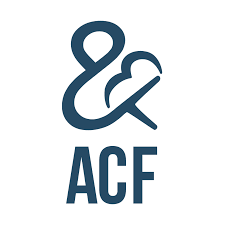
Administration for Children & Families
The Administration for Children and Families (ACF) observes May as Missing and Murdered Indigenous People (MMIP) Awareness Month to highlight the disproportionate rates of violence and disappearance affecting Indigenous women, girls, and Two-Spirit individuals in the United States. Through initiatives like public education campaigns and culturally grounded prevention strategies, ACF aims to support Native communities in addressing this crisis and promoting healing.
Visit: https://acf.gov/archive/blog/2023/05/missing-and-murdered-indigenous-peoples-mmip-awareness-month

MMIP Reports and Data from the United States Government Accountability Office (GAO)
The U.S. Government Accountability Office (GAO) is an independent, nonpartisan agency that serves as the investigative arm of Congress, providing objective, fact-based information to help improve government performance and ensure accountability in the use of taxpayer dollars. Established in 1921 and often referred to as the “congressional watchdog,” GAO conducts audits, evaluations, and investigations across federal programs, offering recommendations to enhance efficiency and effectiveness.
Visit: gao.gov
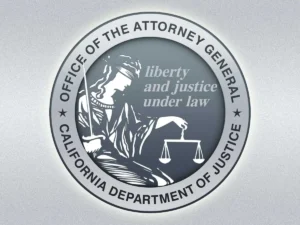
Office of Attorney General
The California Department of Justice’s Human Trafficking page defines human trafficking as a form of modern-day slavery involving the exploitation of individuals through force, fraud, or coercion for labor or sexual purposes. It highlights that California, due to its large population and economy, is a top destination for human trafficking in the U.S., and provides resources for identifying and reporting trafficking, as well as support services for victims.

U.S. Department of Justice
The U.S. Department of Justice has prioritized addressing the disproportionately high rates of violence and missing persons cases among Native American communities. In response, the Department has implemented initiatives such as the Steering Committee to Address the Crisis of Missing or Murdered Indigenous Persons, and is actively working to enhance coordination with Tribal nations and other federal agencies to improve public safety and justice for Indigenous peoples.
Visit: https://www.justice.gov/tribal/mmip/about
Visit: https://www.justice.gov/action-center/report-and-identify-missing-persons
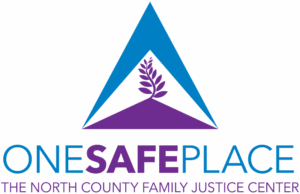
One Safe Place North County Family Justice Center
One Safe Place North, located in San Marcos, California, is a comprehensive Family Justice Center offering free, trauma-informed services to individuals affected by abuse, trafficking, and other forms of victimization. Operating Monday through Friday and the first Saturday of each month, the center provides a range of support, including legal assistance, forensic medical exams, trauma therapy, and connections to community resources, all under one roof.
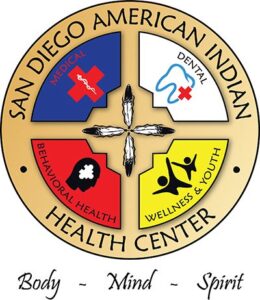
San Diego American Indian Health Center (SDAIHC)
The San Diego American Indian Health Center (SDAIHC) is a Federally Qualified Health Center and nonprofit organization offering comprehensive medical, dental, behavioral health, and wellness services to all individuals in San Diego. Their mission is to promote excellence in health care while respecting cultural customs and traditions.
Visit: https://www.sdaihc.org
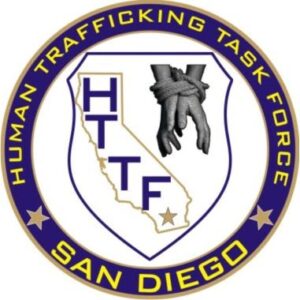
San Diego Human Trafficking Task Force
The San Diego Human Trafficking Task Force’s website offers resources and support for victims of human trafficking, including hotlines, counseling, housing assistance, and legal services. It also provides information on recognizing signs of trafficking and accessing local organizations dedicated to prevention and recovery.

San Diego County District Attorney’s Office
The San Diego County District Attorney’s Office Human Trafficking page outlines efforts to combat modern-day slavery involving the exploitation of individuals for sex or labor through force, fraud, or coercion. It highlights San Diego as a major hub for trafficking, with sex trafficking alone generating around $810 million annually, and provides victim support resources including 24/7 hotlines.
Visit: https://www.sdcda.org/preventing/human-trafficking/
Visit: https://www.sdcda.org/helping/victims/victim-services/
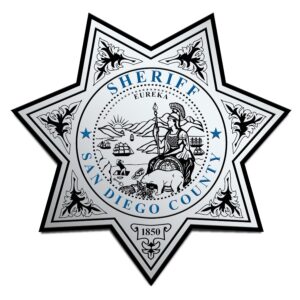
San Diego County Sheriff’s Department – Missing Persons
The San Diego County Sheriff’s Office provides public safety services across 4,200 square miles, including unincorporated areas, nine contract cities, and eighteen Indian Reservations. They manage county jails, ensure courthouse security, and offer various community programs and resources.
Visit: https://www.sdsheriff.gov/
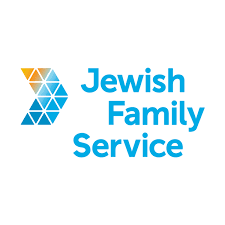
Jewish Family Services Breaking Down Barriers
Jewish Family Service of San Diego’s “Breaking Down Barriers” is an outreach and education program designed to reduce mental health stigma within under-resourced communities, focusing on populations such as Black, Indigenous, People of Color (BIPOC), and LGBTQIA+ individuals. Through culturally relevant workshops and events, the program addresses topics like self-care, historical trauma, stress management, and cultural humility, aiming to normalize conversations about mental wellness and connect participants with supportive resources.
Visit: https://www.jfssd.org/our-services/breaking-down-barriers/
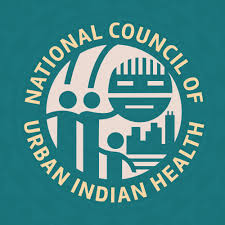
National Council of Urban Indian Health
The San Manuel Band of Mission Indians’ Missing and Murdered Indigenous Persons (MMIP) initiative raises awareness about the disproportionate violence faced by Indigenous communities through advocacy, education, and community events like annual 5K walks. The program supports legislative efforts such as California’s Feather Alert system and funds organizations like Ohkomi Forensics to enhance investigations and provide culturally sensitive support for affected families.
Visit: https://ncuih.org/wp-content/uploads/MMIP-Fact-Sheet_NCUIH_D242_V6_F.pdf
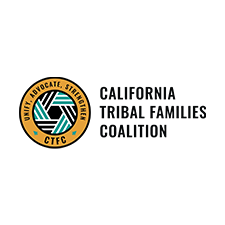
Tuchily Healing Hearts
The Tuchily Healing Hearts Tribal Mobile Crisis Response Team offers culturally sensitive, community-based behavioral health crisis services to tribal communities in California. Funded through the state’s Crisis Care Mobile Units (CCMU) program, the team provides rapid, on-site support to individuals experiencing mental health or substance use crises, aiming to reduce law enforcement involvement and connect individuals to appropriate care.
Visit: https://caltribalfamilies.org/places/tuchily-healing-hearts-tribal-mobile-crisis-response-team/
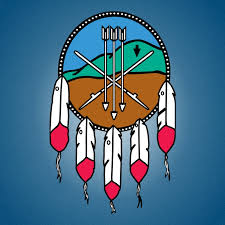
San Manuel
The San Manuel Band of Mission Indians’ Missing and Murdered Indigenous Persons (MMIP) initiative raises awareness about the disproportionate violence faced by Indigenous communities through advocacy, education, and community events like annual 5K walks. The program supports legislative efforts such as California’s Feather Alert system and funds organizations like Ohkomi Forensics to enhance investigations and provide culturally sensitive support for affected families.

San Pasqual Native Woman’s Resource Center
The San Pasqual Native Women’s Resource Center hosted a Stalking Awareness Community Workshop on January 26, 2023, at the San Pasqual Tribal Hall in Valley Center, California. This event aimed to educate attendees about the prevalence and impact of stalking, particularly within Native communities, and to provide resources for support and prevention.

Strong-Hearted Native Women’s Coalition
StrongHearts Native Helpline is a 24/7 confidential and anonymous service providing culturally appropriate support to Native American and Alaska Native individuals affected by domestic and sexual violence. Services include peer advocacy, crisis intervention, safety planning, and referrals to Native-centered resources, accessible via phone, text, or online chat.
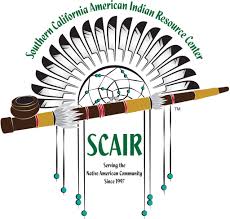
Southern California American Indian Resource Center (SCAIR)
The Southern California American Indian Resource Center, Inc. (SCAIR) is a nonprofit organization founded in 1997 to support Native American, Alaska Native, and Native Hawaiian individuals and families across San Diego and Ventura counties. SCAIR offers a range of services including career development, education, mental health counseling, cultural enrichment, and emergency assistance through programs like Native NetWORKS, Tribal TANF, and the Howka Community Service Block Grant.
Visit: https://www.scairinc.org
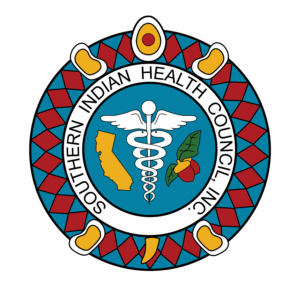
Southern Indian Health Council
The Southern Indian Health Council (SIHC) is a nonprofit organization dedicated to enhancing the physical, mental, and spiritual well-being of Native American communities in East County, San Diego. Serving seven tribal nations—Barona, Campo, Ewiiaapaayp, Jamul, La Posta, Manzanita, and Viejas—SIHC offers a comprehensive range of services, including medical, dental, pharmacy, behavioral health, and social services, all rooted in cultural competence and patient-centered care.
Visit: https://www.sihc.org

Sycuan Medical Dental Center
The Sycuan Health Center, owned and operated by the Sycuan Band of the Kumeyaay Nation, is a comprehensive outpatient facility in El Cajon, California, offering medical, dental, pharmacy, behavioral health, and social services to Native American and general community members. The center emphasizes patient-centered care, integrating services through a multidisciplinary team approach, and is currently expanding with a new 23,000-square-foot facility to better serve its community.